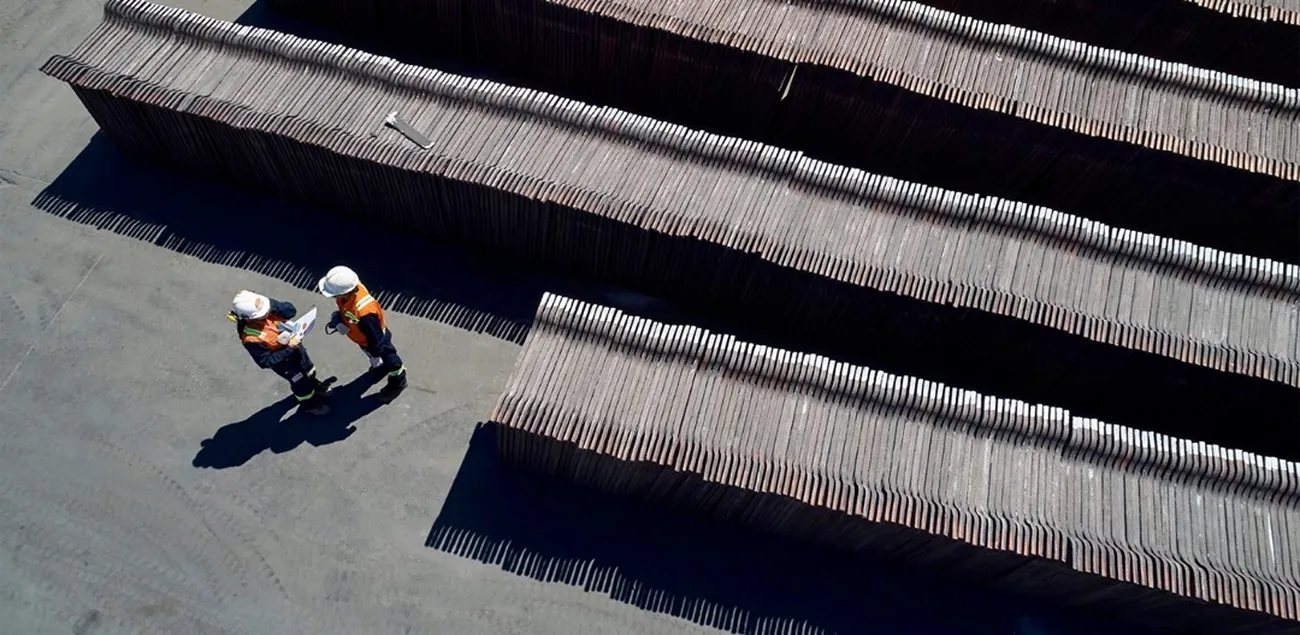
Swiss-British mining and commodities trading firm Glencore sold its Philippine Associated Smelting and Refining Corp (Pasar) assets to business holdings of Villar family led by Manny Villar Jr. This takes place in the context of historically unprecedented challenges facing the world’s copper smelter market in low-processing fees and surplus-capacity scenarios which have made most plants economically unviable.
The sale took place as part of Glencore’s broader reorganization of its metallurgical operations, which it has been undertaking since 2024. Pasar had also commenced care and maintenance earlier in 2025 when refining and treatment charges had dipped to all-time lows, which made operations economically unsustainable.
Industry Downturn Compels Div
Copper smelters have faced unprecedented hardships, including refining and treatment charges that fell to $15 per tonne in 2025, down from $80 in 2020. Such a sharp fall illustrates a basic mismatch between refining capacities globally that are available and supplies of copper concentrate feeds. All smelters globally are fighting for dwindling supplies of ore while they have high production expenses including energy, labor, and raw materials.
Glencore has also conducted a full assessment of its international smelters of copper and zinc, which have required multibillion write-offs of its valuation in metallurgical production assets. Its Mount Isa Australian smelter also experiences similar viability issues, which have led Glencore to rely on government bailouts in order to continue operations after 2025.
Industry structure issues are a product of excess smelting facility capacity worldwide, most notably in China and Indonesia, where operations are not economically viable but were sustained through government support. Such subsidized operations have developed a lopsided playing field that pushed margins for unsubsidized operations beyond unsustainable levels.
Pasar’s Strategic Value and History of Operations
Pasar has remained one of Glencore’s biggest trading vessels since it purchased it from the Philippine government when they sold it to them in 1999. Pasar’s purpose has remained strategic in being one of Pacific Basin Australian and Indonesian producers’ biggest outlet, and also of stranded ships re-routed to China through South America.
Its plant processes about 1.2 million tons per year of copper and supplies London Metal Exchange-brand cathodes, sold widely throughout Asian markets. It’s worth it strategically in its Pacific trade company, Glencore’s plant, but costly in Glencore’s current market situation.
It had at least considered selling Pasar at least since Dec 2024, which reflects worsening smelter operations economics worldwide. This year’s earlier plant shutdown also hinted about Glencore’s plans to conserve capital when looking for a likely acquirer that will operate the plant more efficiently.
Villar Family Ownership and Business
Manny Villar Jr, with a net worth estimated at over $23 billion, leads one of the Philippines’ most prominent business dynasties. The Villar family controls the country’s largest homebuilder and maintains significant interests across multiple sectors including shopping malls, home improvement retail, supermarkets, and broadcast media.
The acquisition of Pasar represents a diversification into industrial processing for the Villar family, leveraging their deep understanding of Philippine regulatory environments and local market dynamics. Their regional expertise and access to domestic capital markets could potentially enable operational improvements and cost reductions that might not be available to international operators.
The family’s extensive business network in the Philippines may provide advantages in securing permits for environmental upgrades, accessing lower-cost financing, and navigating local regulatory requirements. These factors could be crucial for modernizing the facility and improving its competitive position in the challenging global smelting market.
Global Copper Industry Smelting Problems
Smeling processes are also subject to several headwinds that are beyon market forces. Overcapacity has also compounded mine shut downs and production stoppages, which led to diminished available feedstocks of copper concentrate. Key smeling operations such as Peruvian Las Bambas have had their smeling processes closed, further tightly constraining concentrate supplies.
Environmental regulation creates more expense for smelter operations that incur high capital investments in pollution prevention technologies and disposal units for waste. Such compliance expenses are most severe in old plants that require high capital investment to achieve modern environmental standards.
These challenges are also exacerbated by geographically clustered subsidized Asian capacity, which causes government assistance to hold margins that otherwise are not warranted under market economies. It has also developed a two-tiered market structure that penalizes outside region plants that have also received such government assistance.
Company Background
Glencore International AG is a diversified natural resources multinational company that aggregates mining businesses and commodity trading businesses on several continents. Historically, Glencore’s integrated business strategy has allowed it to have competencies in optimizing supply chain efficiency and capturing value throughout the full commodity value chain.
Copper demand is expected to grow substantially due to electrification trends and renewable energy infrastructure development, but this growth primarily benefits mining operations rather than smelting facilities facing structural overcapacity. The industry’s future will likely depend on capacity rationalization and technological improvements that can reduce operating costs and environmental impact.



